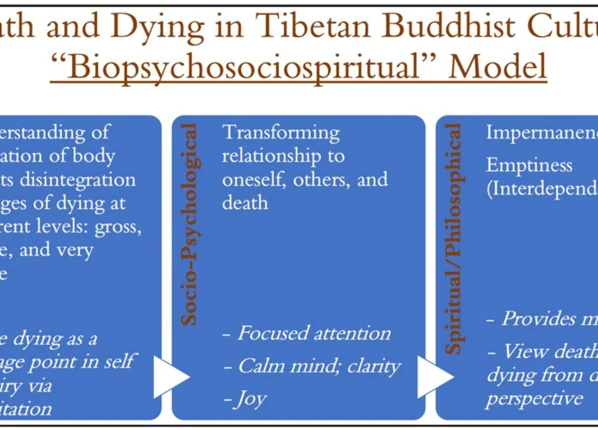Dreams have always been a mysterious and fascinating aspect of human consciousness, providing a glimpse into the depths of our unconscious mind. Among the many types of dreams, death dreams hold a particularly intriguing nature as they often elicit strong emotions and leave a lasting impact on the dreamer. In this article, we will delve into the profound influence of culture and beliefs on the interpretation of death dreams. Through a cross-cultural lens, we will explore how different societies perceive and analyze these dreams, uncovering the rich tapestry of symbolism and meaning behind them. Additionally, we will examine the role of personal beliefs in shaping the interpretation of death dreams, and how cultural practices and rituals further shape our understanding of these enigmatic visions. Finally, we will delve into the psychological perspectives of renowned theorists such as Freud and Jung, offering insights into the subconscious forces at play in the realm of death dreams. Prepare to embark on a journey that unravels the intricate connections between culture, beliefs, and the mysterious realm of dreaming.
The Significance of Dreams
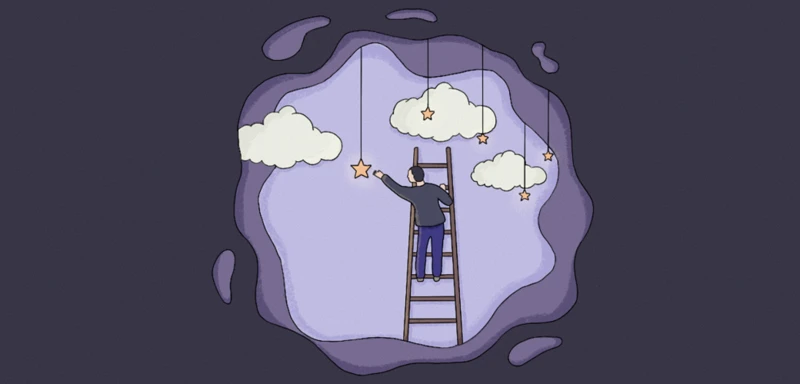
The significance of dreams cannot be understated in the realm of human experience. They serve as windows into our unconscious mind, offering a glimpse into the hidden depths of our thoughts, emotions, and desires. Dreams have fascinated and perplexed people throughout history, sparking curiosity about their origins and meaning. Death dreams, in particular, hold a profound and mysterious allure. These dreams, characterized by images and themes related to death or dying, elicit strong emotions and leave a lasting impact on the dreamer. They can evoke fear, anxiety, or even a sense of curiosity and wonder. The interpretation of death dreams is influenced by various factors, including culture, beliefs, and personal experiences. By delving into the analysis of death dreams, we can gain deeper insights into our own psyche and the human condition. To understand the significance of these dreams, it is crucial to explore the role of culture and beliefs in dream interpretation, unravel cross-cultural interpretations of death dreams, and examine the psychological impact they may have on individuals. By exploring these facets, we can gain a greater understanding of the complex and intriguing nature of death dreams.
1. Dreams as Windows into the Unconscious Mind
Dreams serve as fascinating portals into our unconscious mind, providing a unique window into the vast depths of our thoughts, emotions, and desires. They offer a rich tapestry of symbols, images, and narratives that can unlock hidden aspects of our psyche. As we sleep, our conscious mind takes a backseat, and our unconscious mind takes center stage, allowing for a free flow of thoughts and feelings that may not be readily accessible during waking hours. Dreams often contain elements that reflect our deepest fears, desires, and unresolved conflicts. They can reveal repressed memories, unresolved emotions, or even provide creative insights and problem-solving solutions. Dreams can be highly individualistic, influenced by personal experiences, memories, and unique psychological makeup. They can also be influenced by external factors such as daily stressors or significant life events. By analyzing and interpreting our dreams, we can gain valuable insights into ourselves, our innermost thoughts, and motivations. Through this process, we can gain a deeper awareness of our own emotions, fears, and aspirations. Dreams, with their mysterious and symbolic nature, offer a doorway into the realms of our unconscious mind, paving the way for self-discovery and personal growth. It is through the exploration of dreams that we can unlock the hidden treasures of our innermost selves. [source]
2. Death Dreams and their Intriguing Nature
Death dreams possess an inherent and intriguing nature that captivates the minds of those who experience them. When individuals dream about death, it often elicits a wide range of emotions, including fear, curiosity, and introspection. These dreams can take various forms, such as witnessing the death of a loved one, experiencing one’s own death, or encountering symbolic representations of death. The vivid imagery and intense emotions associated with death dreams make them difficult to ignore or dismiss as mere figments of the imagination. Instead, they demand attention and introspection as they navigate the complex terrain of mortality and the unknown. Death dreams can serve as catalysts for personal growth and self-reflection, forcing individuals to confront their deepest fears and anxieties surrounding death. For some, these dreams act as wake-up calls, prompting them to reevaluate their lives and make necessary changes. Others may find solace and reassurance in these dreams, seeing them as a way to explore the mysteries of the afterlife or to connect with departed loved ones. The intriguing nature of death dreams lies in their ability to plunge us into the realm of the unknown, forcing us to confront our mortality and grapple with the existential questions that lie at the core of human existence. Truly, death dreams are a profound and enigmatic aspect of the dream world, inviting us to explore the depths of our psyche and confront our deepest fears and beliefs surrounding death. For more insight into the analysis of death dreams and the underlying fears they may represent, refer to our article on analyzing fear in death dreams.
Interpreting Death Dreams
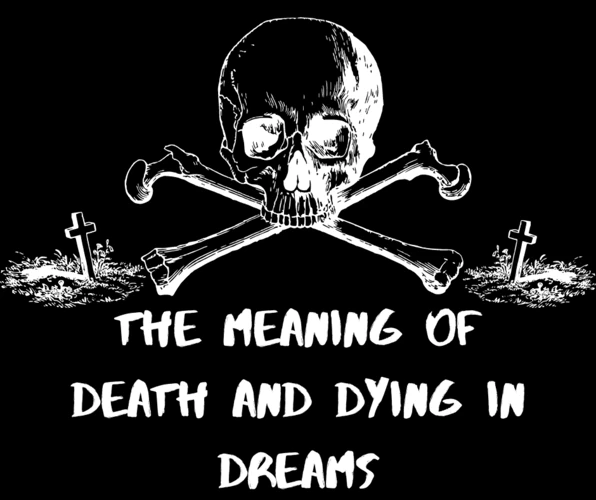
Interpreting death dreams is a nuanced and complex endeavor that requires an understanding of various factors influencing dream symbolism and meaning. One crucial aspect of interpretation is the role of culture and beliefs. Cultural influences shape our perspectives on death, shaping the way we perceive and interpret death-related imagery in dreams. For example, in Western cultures, death is often associated with fear and sadness, leading to negative interpretations of death dreams. However, in other cultures, such as some indigenous societies, death is viewed as a natural and cyclical part of life, giving death dreams a more symbolic and transformative meaning. Understanding cultural variations in dream symbolism is essential for accurate interpretation. Internal link to “/investigating-death-dreams-grieving/” Another aspect of interpreting death dreams is considering the personal beliefs of the dreamer. Personal beliefs about death, such as religious or spiritual beliefs, can heavily influence dream interpretation. For instance, individuals who hold strong beliefs in an afterlife may interpret death dreams as messages or encounters with the deceased. On the other hand, individuals with atheistic or skeptical beliefs may interpret death dreams as symbolic representations of change or transition. By taking into account both cultural and personal beliefs, dream analysts can begin to untangle the intricate layers of symbolism and meaning present in death dreams.
1. The Role of Culture and Beliefs in Dream Interpretation
Culture and beliefs play a pivotal role in the interpretation of dreams. Dream analysis is heavily influenced by the cultural context in which an individual resides. Cultural beliefs, values, and traditions shape the way dreams are perceived and understood. For example, in some cultures, dreams are considered to be messages from the divine or ancestors, carrying significant spiritual or prophetic meaning. In contrast, other cultures may view dreams as a manifestation of unconscious desires or psychological processes. Cultural norms also dictate the symbols and imagery associated with dreams. Certain symbols may hold different connotations and interpretations across cultures. For instance, while a snake may symbolize wisdom and transformation in one culture, it may be seen as a symbol of deceit or danger in another. Cultural narratives and mythologies influence dream interpretation. Folktales, legends, and religious stories often provide a framework for understanding dreams and their symbolism in a specific cultural context. It is essential to consider cultural perspectives and beliefs when analyzing dreams, as they play a significant role in shaping dream interpretations.
2. Cross-Cultural Interpretations of Death Dreams
Cross-cultural interpretations of death dreams offer a fascinating glimpse into the diverse ways in which different societies perceive and analyze these enigmatic visions. Each culture brings its own unique set of beliefs, symbols, and rituals to the interpretation of death dreams, resulting in rich and varied interpretations. In some cultures, death dreams are seen as omens or messages from the spiritual realm, conveying important messages or warnings. For example, in certain African cultures, death dreams are believed to be messages from ancestors or spirits, guiding the dreamer through significant life decisions. Similarly, in Native American cultures, death dreams are seen as communication from the spirit world, providing guidance and insights into the dreamer’s life path. On the other hand, in Western cultures, death dreams are often associated with personal anxieties and fears about mortality. They may symbolize unresolved emotional issues or represent the fear of losing loved ones. Additionally, religious beliefs play a significant role in the interpretation of death dreams. In Hinduism, for instance, death dreams are seen as opportunities for spiritual growth and self-reflection, while in Buddhism, they may symbolize the impermanence and transitory nature of existence. The interpretation of death dreams varies greatly across cultures, reflecting the diverse perspectives and beliefs that shape our understanding of these haunting and thought-provoking dreams.
Case Studies
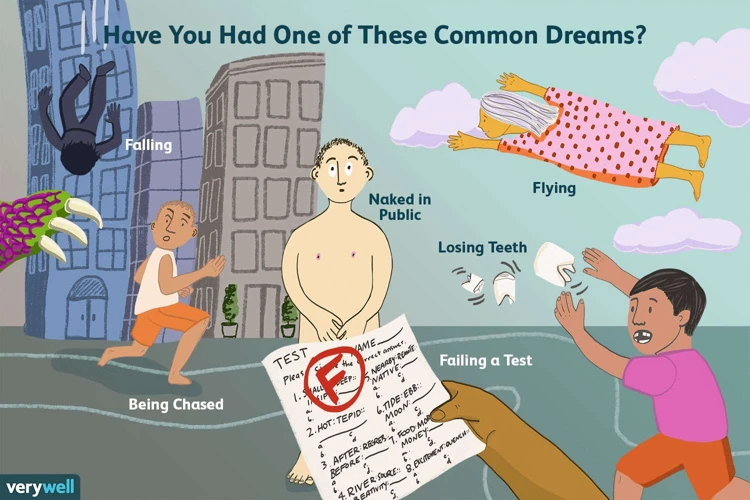
Case studies provide valuable insights into the cultural variations in dream symbolism and the influence of religious beliefs on dream perception. Through examining specific examples, we can delve deeper into the multifaceted nature of death dreams and their interpretation across different societies. In one case study, we may explore how indigenous cultures view death dreams as messages from ancestors or spirits, attributing profound spiritual significance to these visions. On the other hand, a case study on Western cultures might reveal more secular interpretations, with death dreams being seen as reflections of fear, anxiety, or subconscious thoughts about mortality. By comparing and contrasting these case studies, we can gain a broader perspective on the role culture and beliefs play in shaping our understanding of death dreams. The rich tapestry of case studies allows us to appreciate the diverse ways in which individuals and communities perceive and interpret these enigmatic and thought-provoking dreams.
1. Cultural Variations in Dream Symbolism
Cultural variations play a significant role in the interpretation of dream symbolism, including death dreams. Different cultures have their own unique set of symbols and meanings attached to various elements of dreams. For instance, in some cultures, snakes may represent wisdom or transformation, while in others, they may symbolize danger or deceit. These cultural variations can greatly influence the interpretation of death dreams, as symbols associated with death can carry vastly different connotations across different societies.
In some cultures, death dreams are seen as foretelling a future event or a warning from the spiritual realm. For example, in certain indigenous cultures, dreaming of deceased ancestors is believed to be a form of communication and guidance from the spirit world. These dreams are considered sacred and carry significant meaning, often guiding individuals in their daily lives or providing insights into important decisions.
On the other hand, in Western cultures, death dreams are often associated with fear and anxiety. The symbolism in these dreams may revolve around the fear of one’s mortality or the unresolved emotions associated with the loss of a loved one. Dreaming of death may be interpreted as a reflection of the dreamer’s subconscious fears and anxieties surrounding their own mortality or the fear of impending loss.
It is important to note that dream symbolism can also vary within cultures based on individual beliefs and experiences. While there may be overarching cultural interpretations, personal associations and experiences with certain symbols can shape the meaning of death dreams on an individual level. For example, a person who has had a positive encounter with snakes in their waking life may interpret a snake symbol in a death dream differently than someone with a fear of snakes.
Cultural variations in dream symbolism highlight the rich diversity of human experiences and perceptions. It demonstrates how cultural beliefs and experiences shape the interpretation of death dreams, adding unique layers of meaning to these enigmatic visions. By studying these variations, we gain a deeper understanding of the complex interplay between culture, symbolism, and the interpretation of death dreams.
2. Religious Influences on Dream Perception
Religion plays a significant role in shaping the perception and interpretation of dreams, including death dreams. Different religious beliefs and practices influence how individuals understand and assign meaning to their dreams. In many religious traditions, dreams are seen as a realm of communication between humans and the divine. For example, in Christianity, dreams hold biblical significance, with numerous instances of divine messages being conveyed through dreams in the Bible. Christians may view death dreams as spiritual encounters or messages from God, seeking guidance or solace from these visions. Similarly, in Islam, dreams are considered a means of divine communication and guidance. Muslims may interpret death dreams as indications of the afterlife or as messages from Allah. In contrast, other religious beliefs may view death dreams with different perspectives. For instance, in certain indigenous traditions, dreams are seen as connections to the spirit world. Indigenous communities may interpret death dreams as encounters with deceased ancestors or as messages from the spirit realm. These religious influences shape the lens through which individuals perceive and interpret their death dreams, infusing them with spiritual significance and guiding their understanding of the afterlife. Exploring the religious perspectives on dream perception adds a deeper layer of complexity to the analysis of death dreams and highlights the diversity of interpretations across different belief systems.
The Role of Personal Beliefs
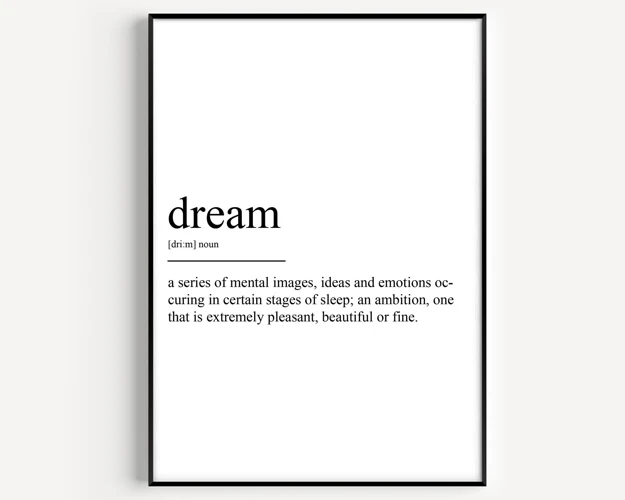
The role of personal beliefs is paramount in shaping the interpretation of death dreams. Each person possesses their own unique set of beliefs, values, and experiences that inform their perception of death and the afterlife. Personal beliefs greatly influence the emotional impact and symbolism attached to death dreams. For some individuals, death dreams may elicit feelings of fear and anxiety, reflecting their personal belief in a terrifying or uncertain afterlife. Others may interpret these dreams as a reflection of their subconscious thoughts about mortality, embracing a more introspective and philosophical perspective. Personal beliefs also play a role in how individuals perceive the presence of deceased loved ones in death dreams. For those who hold spiritual or religious beliefs, these dreams can be seen as a form of communication or visitation from the deceased. Such interpretations may bring comfort and a sense of connection to the dreamer. It is important to recognize that personal beliefs vary greatly and can significantly impact the way in which death dreams are understood and interpreted. By examining these beliefs and their influence on dream perception, we can gain deeper insights into the complex interplay between personal experiences and the symbolism embedded within these profound dreams.
1. Personal Beliefs and Fear of Death
Personal beliefs play a significant role in shaping our interpretation of death dreams, particularly in relation to the fear of death. Many individuals hold specific religious or spiritual beliefs that influence their perceptions of the afterlife and the meaning of death. These beliefs can greatly impact how death dreams are perceived and understood. For example, individuals who believe in an afterlife may view death dreams as messages or glimpses into the realm beyond, providing a sense of comfort or reassurance. On the other hand, those who hold more atheistic or agnostic beliefs may interpret death dreams as symbolic representations of change, transformation, or the fear of the unknown. It is essential to note that fear of death is a common human experience, and it can intensify the emotional impact of death dreams. Our personal beliefs about death and the afterlife heavily influence how we navigate our fears and anxieties related to mortality. These beliefs can shape our understanding of death dreams, providing a framework through which we interpret and make sense of these profound and often unsettling experiences. Understanding the significance of personal beliefs illuminates the intricate connection between our thoughts, emotions, and dreams surrounding the concept of death.
2. Spirituality and Afterlife Interpretations
Spirituality plays a significant role in shaping the interpretation of death dreams, particularly in relation to afterlife beliefs. Across different cultures and religions, there are diverse perspectives on what happens after death, and these beliefs heavily influence how death dreams are understood. For example, in some belief systems, death is seen as a transition to another realm or a continuation of the soul’s journey. In these interpretations, death dreams may be viewed as messages or visitations from departed loved ones or guides from the spiritual realm. They can be seen as opportunities for communication and reassurance from the afterlife. Conversely, in belief systems where death is perceived as the end of existence or a state of non-being, death dreams may evoke fear or uncertainty. Individuals may interpret these dreams as reflections of their anxieties surrounding mortality and the unknown. Ultimately, spiritual beliefs shape the lens through which death dreams are perceived, offering insights into the intricate connection between dream symbolism, personal spirituality, and the human yearning for understanding and comfort in the face of death and the afterlife.
Cultural Practices and Rituals
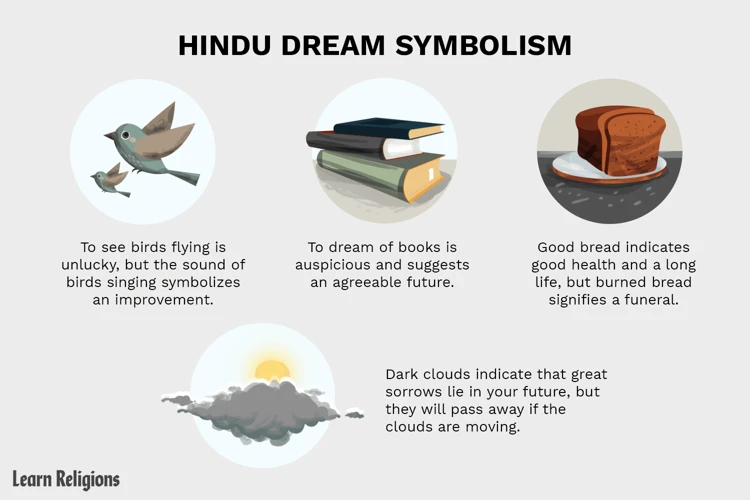
Cultural practices and rituals play a significant role in shaping our interpretations and understanding of death dreams. Across different cultures and societies, funeral customs and rituals vary greatly, influencing the symbolism and meaning attributed to these dreams. In some cultures, death dreams are seen as messages from the deceased, offering guidance or warnings to the dreamer. For example, in certain Indigenous cultures, dreams are considered avenues for communication with ancestors. Dreamers may participate in rituals and ceremonies to honor and connect with their ancestors, seeking guidance and wisdom through their dreams. Ancestor worship is prevalent in cultures like China and Japan, where dreams are seen as a medium for communication between the living and the dead. These cultural practices and rituals provide a framework for interpreting death dreams, shaping the beliefs and expectations surrounding them. It is through these practices that individuals find solace, meaning, and a sense of connection to something greater than themselves. The richness and diversity of cultural practices and rituals highlight the profound impact they have on shaping our interpretations of death dreams.
1. Funeral Customs and Dreams
Funeral customs play a significant role in the interpretation of death dreams. Different cultures have unique rituals and practices surrounding death, and these beliefs and customs often find their way into the dream realm. In many cultures, funerals are seen as a way to honor and pay respects to the deceased, providing closure and facilitating the grieving process. Dreams related to funerals and burial ceremonies can reflect this cultural context and have symbolic meaning. For example, in some cultures, dreaming of attending a funeral may signify the need to let go of past grievances or to prepare for significant life changes. Dreams about participating in funeral rituals might also indicate a desire for closure or the need to process unresolved emotions. On the other hand, dreams of being unable to attend a funeral or feeling detached from the rituals may symbolize a fear of death or a difficulty in accepting the loss of a loved one. Additionally, dream experiences of communicating with the deceased during funeral ceremonies can be seen as a way to connect with ancestors or seek guidance from the spiritual realm. Funeral customs and rituals provide a cultural context that shapes the symbolism and interpretation of death dreams, offering insight into the way different societies approach and understand the concept of death and the afterlife.
2. Ancestor Worship and Dream Communication
Ancestor worship is a cultural practice that holds significant importance in many societies. It involves revering and honoring one’s ancestors, often by performing rituals, offering prayers, and seeking guidance from their spirits. In the context of dream communication, ancestor worship plays a crucial role. It is believed that dreams serve as a powerful medium for communication between the living and the deceased ancestors. In these cultures, dreams are seen as a portal to the spiritual realm, where ancestors can convey messages, warnings, or blessings to their living descendants.
Dreams are considered a direct line of communication with the ancestral spirits, providing an avenue for guidance, protection, and insight. Dreamers may experience vivid, symbolic dreams in which their deceased ancestors appear and interact with them. These dreams are seen as sacred and are often interpreted with reverence and careful attention to detail.
In some cultures, specific rituals or practices are performed to enhance dream communication with ancestors. These may include creating ancestral altars, lighting candles or incense, or reciting prayers before sleep. By engaging in these rituals, individuals seek to establish a spiritual connection with their ancestors and invite them into their dreams.
The interpretation of dreams in the context of ancestors involves decoding the symbolic messages and images presented in the dream. Symbols unique to the ancestral lineage may hold particular significance and require cultural knowledge and understanding to interpret accurately. Dreamers may consult spiritual leaders or elders within their community who possess the wisdom and insight to decipher these dreams.
Ancestor worship and dream communication provide a profound and deeply ingrained connection to cultural heritage and spiritual beliefs. The belief in the ability to communicate with ancestors through dreams offers a sense of continuity and guidance from previous generations. It serves as a reminder that the presence and influence of ancestors continue to shape and guide the lives of their descendants.
Psychological Perspectives on Death Dreams
Psychological perspectives offer valuable insights into the interpretation of death dreams, shedding light on the underlying meanings and symbolism. Sigmund Freud, the father of psychoanalysis, believed that dreams were a manifestation of repressed desires and unconscious conflicts. From a Freudian perspective, death dreams may symbolize the fear of mortality, unresolved issues, or the need for transformation and rebirth. Freud argued that death in dreams represents the wish for an end to something in the dreamer’s life, whether it be a relationship, a job, or a phase of life.
On the other hand, Carl Jung, a prominent Swiss psychiatrist and founder of analytical psychology, viewed dreams as a pathway to the collective unconscious. According to Jung, dream symbols and archetypes represent universal patterns and themes that are shared by all human beings. In the realm of death dreams, Jung saw them as symbolic of profound personal transformation or spiritual growth. Jung believed that death in dreams signifies a transition or a symbolic death of the old self, paving the way for personal growth and renewal.
While Freud and Jung offer distinct perspectives on the interpretation of death dreams, both emphasize the significance of these dreams as reflections of the dreamer’s inner world and unconscious desires. By exploring these psychological perspectives, we gain a deeper understanding of the profound impact that death dreams can have on an individual’s psyche and personal growth. They remind us of the complex and multi-faceted nature of dreams, inviting us to delve into the depths of our unconscious mind to unlock the mysteries they hold.
1. Freudian Interpretation of Death Dreams
The Freudian interpretation of death dreams offers a fascinating perspective on the unconscious symbolism and hidden meanings behind these dreams. According to Sigmund Freud, the father of psychoanalysis, dreams are a reflection of our repressed desires and unresolved conflicts. In the context of death dreams, Freud believed that they often symbolize the fear of castration or the fear of losing one’s own life. For example, the act of dying in a dream could represent a fear of losing power or control in waking life. Additionally, Freud theorized that death dreams can also serve as a symbolic representation of repressed aggression or the desire to escape from the constraints of daily life. He argued that the death of a loved one in a dream could reflect underlying feelings of resentment or anger towards that person. Freud believed that death dreams could be an expression of the deathwish, an unconscious desire for self-destruction or release from emotional pain. These interpretations highlight the complex interplay between our subconscious desires, fears, and unresolved conflicts in the realm of death dreams. Freud’s theories continue to offer valuable insights into the intricate workings of the human mind and the symbolism expressed in our dreams.
2. Jungian Analysis of Death Dreams
Jungian analysis offers a unique and insightful perspective on the interpretation of death dreams. According to Carl Jung, dreams are a powerful tool for self-discovery and individuation. In the context of death dreams, Jung believed that these dreams symbolize a profound transformation or rebirth in the dreamer’s life. He viewed death as a metaphorical representation of the ego’s surrender to the unconscious, allowing for growth and integration of different aspects of one’s personality. Jung emphasized the importance of recognizing the symbolism present in death dreams and exploring the unconscious messages they convey. He believed that death dreams often reflect the dreamer’s need to confront and integrate their shadow, or the repressed and unacknowledged aspects of their personality. By engaging in Jungian analysis of death dreams, individuals can gain a deeper understanding of themselves and their own psychological processes. This analysis may involve exploring archetypal symbols and themes, such as the journey to the underworld or encounters with mythical figures associated with death and transformation. Ultimately, Jungian analysis offers a rich and meaningful framework for unraveling the complex layers of meaning present in death dreams, leading to personal growth and self-realization.
Conclusion
In conclusion, the analysis of the influence of culture and beliefs on death dream interpretation reveals the intricate and multifaceted nature of these enigmatic visions. Dreams, including death dreams, serve as windows into the unconscious mind, providing insight into our thoughts, emotions, and desires. The interpretation of these dreams is heavily influenced by cultural factors and personal beliefs, shaping the symbolism and meaning attributed to them. The cross-cultural examination of death dreams highlights the diversity of interpretations across different societies and the rich tapestry of symbolism associated with death. Additionally, personal beliefs, particularly regarding death and the afterlife, play a significant role in how individuals perceive and interpret these dreams. Cultural practices and rituals surrounding death further enhance our understanding of death dreams, as they offer insight into the collective beliefs and customs of a society. From a psychological perspective, theorists like Freud and Jung provide valuable perspectives on the unconscious forces at play in death dreams. The interpretation of these dreams offers a profound exploration of our fears, anxieties, and hopes related to death and the afterlife. Understanding the significance of death dreams can provide individuals with a deeper understanding of themselves and the human experience as a whole. As we continue to unravel the mysteries of the dream realm, the influence of culture and beliefs will remain integral to comprehending the intricate tapestry of death dream interpretation.
Frequently Asked Questions
1. Can dreams really provide insight into our unconscious mind?
Yes, dreams are believed to be a direct link to our unconscious mind. They can reveal hidden desires, unresolved conflicts, and suppressed emotions that we may not be aware of in our waking life.
2. What are death dreams and why are they so intriguing?
Death dreams are dreams that contain themes or symbols related to death or dying. They are intriguing because they tap into our deepest fears and anxieties about mortality, sparking curiosity about their meaning and significance.
3. How does culture influence the interpretation of death dreams?
Culture plays a significant role in dream interpretation, including death dreams. Cultural beliefs, rituals, and symbols shape the way individuals perceive and interpret these dreams, adding layers of meaning and significance that vary across different societies.
4. Are there cross-cultural interpretations of death dreams?
Yes, there are cross-cultural interpretations of death dreams. While the specific symbols and meanings may differ, there are often universal themes such as transformation, rebirth, or spiritual awakening associated with death dreams across cultures.
5. Do personal beliefs impact the interpretation of death dreams?
Absolutely. Personal beliefs, whether religious or spiritual, significantly influence how individuals interpret death dreams. These beliefs shape perceptions of the afterlife, the significance of death, and the symbolism associated with dying in dreams.
6. Can death dreams reflect a fear of death?
Yes, death dreams can reflect a fear of death. These dreams may be triggered by an individual’s subconscious anxieties and concerns about mortality, serving as a way for the mind to process and cope with these fears.
7. Are there any cultural practices or rituals related to death dreams?
Yes, many cultures have specific funeral customs and rituals that are deeply intertwined with the interpretation of death dreams. These practices, such as mourning ceremonies or ancestor worship, provide a cultural framework for understanding and honoring the deceased.
8. What is the Freudian interpretation of death dreams?
Sigmund Freud, the renowned psychoanalyst, believed that death dreams symbolize repressed desires or unresolved conflicts. Freud’s interpretation often emphasized the sexual and aggressive aspects of these dreams, linking death symbolism to deeper psychological meanings.
9. How does Carl Jung analyze death dreams?
Carl Jung, another influential psychologist, viewed death dreams as transformative experiences. He saw them as an expression of the psyche’s quest for self-discovery and spiritual growth, with death symbolizing the ego’s necessary journey towards integration and wholeness.
10. Are death dreams always negative or scary?
No, death dreams are not always negative or scary. While they can evoke fear or anxiety, they can also be seen as opportunities for introspection, growth, and self-reflection. These dreams may hold profound insights and messages that can assist in personal development and understanding.

